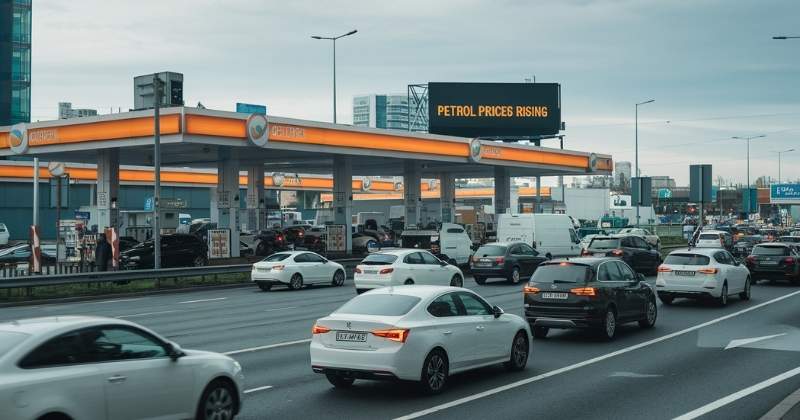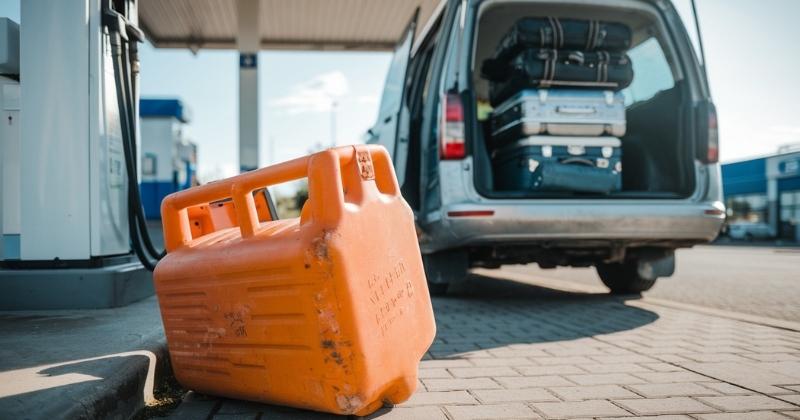
The latest projections indicate that South African motorists are set to face even more challenging times with steep increases in petrol and diesel prices expected in February 2025. This development follows an already difficult start to the year as global and local economic pressures continue to drive up fuel costs. For many South Africans already grappling with the high cost of living, this news adds to the financial burdens they face daily, highlighting the urgent need for more affordable energy solutions.
Key Takeaways
- Significant Fuel Price Increases Expected in February 2025: South African motorists face projected increases of up to 90 cents per litre for diesel and 81 cents per litre for petrol, adding to financial pressures.
- Economic Factors Driving Prices Higher: The weakening rand against the US dollar and rising global oil prices, fuelled by geopolitical instability in the Middle East, are the primary contributors to these hikes.
- Ripple Effects on Households and Industries: Higher fuel costs will likely impact transport, agriculture, and manufacturing, leading to increased prices for goods and services that affect everyday consumers.
January 2025 Price Hikes Already Impacting South Africans
In January 2025, South African vehicle owners experienced significant increases in the cost of both petrol and diesel. The primary contributors to these price hikes were the depreciation of the rand against the US dollar and rising oil prices, largely attributed to ongoing instability in the Middle East. These increases have already placed substantial pressure on businesses reliant on transportation, with rising logistics costs likely to trickle down to consumer goods.
Recent trends have shown further weakening of the rand, exacerbating the situation and hinting at more adverse news for February. The South African economy is under strain, with the weakening currency not only impacting fuel but also pushing up the prices of other essential imports. This economic backdrop suggests that fuel prices will likely climb even higher, adding further strain to motorists’ budgets in the coming month.
As petrol prices soar, one major contributing factor is the increasing repo rate, which affects overall borrowing costs and indirectly fuels inflation. With the repo rate on an upward trend, fuel prices could remain volatile, putting additional strain on consumers.

Expected February 2025 Fuel Price Adjustments
Based on the latest data from the Central Energy Fund (CEF) as of Monday, 13 January 2025, the projected fuel price changes are as follows:
Fuel Type and Expected Price Increases
- Petrol 93 Octane: Increase of 81 cents per litre
- Petrol 95 Octane: Increase of 75 cents per litre
- Diesel 0.05%: Increase of 90 cents per litre
- Diesel 0.005%: Increase of 88 cents per litre
- Illuminating Paraffin: Increase of 73 cents per litre
These increases are particularly concerning for industries such as agriculture and manufacturing, where diesel plays a critical role in powering machinery and transport. Higher production costs in these sectors could lead to increased prices for basic food items and essential goods.
These projections are based on current market conditions, but with fluctuating oil prices and an unstable rand/dollar exchange rate, further adjustments remain possible before the final prices are confirmed. Consumers should brace themselves for the possibility of even steeper increases if market volatility persists.
With global oil prices constantly in flux, South African motorists are always bracing for the next big change. But this time, there’s a bit of good news—April’s price update suggests a much-needed break for drivers. Read more in our full report: April 2025 Petrol and Diesel Price Update Brings Great News.
Key Factors Driving Fuel Prices in South Africa
The price of fuel in South Africa is influenced by two primary factors:
- International Petroleum Product Prices: The global price of oil directly impacts the cost of petroleum products.
- Rand/Dollar Exchange Rate: The exchange rate between the South African rand and the US dollar plays a crucial role in determining the final price of imported fuel.
Oil Price Trends
As of the time of writing, the price of Brent crude oil stands at $80.49 per barrel. This level reflects ongoing geopolitical instability and reduced output in key oil-producing regions. Market analysts suggest that if tensions in the Middle East continue to escalate, oil prices could climb even further, compounding the challenges for oil-importing nations like South Africa.
Rand/Dollar Exchange Rate
The current exchange rate is R18.95 to the dollar, further compounding the impact on fuel prices. A weaker rand increases the cost of importing fuel, leading to higher prices for consumers. Efforts to stabilise the rand have been hindered by slow economic growth and persistent issues such as load-shedding, which have further undermined investor confidence.
As fuel prices climb, managing your budget wisely becomes even more crucial. Learn How to Budget Your Salary to ensure you’re financially prepared for rising costs.
Final Adjustments and Implementation Date
The official fuel price adjustments for February 2025 will be announced at the beginning of the month, with the new prices taking effect at midnight on Tuesday, 4 February 2025. Consumers are advised to refuel their vehicles before this date to avoid the higher prices, while business owners might consider adjusting budgets to accommodate increased operating costs. South African motorists are advised to prepare for these increases and to drive efficiently to minimise fuel consumption in the interim.

Current January 2025 Fuel Prices
To provide context for the expected February increases, the current January 2025 inland and coastal fuel prices are listed below:
Inland Prices Table
| Fuel Type | Price (R/litre) |
|---|---|
| Petrol 93 Octane | R21.34 |
| Petrol 95 Octane | R21.59 |
| Diesel 0.05% | R19.29 |
| Diesel 0.005% | R19.44 |
| Illuminating Paraffin | R13.26 |
Coastal Prices Table
| Fuel Type | Price (R/litre) |
|---|---|
| Petrol 93 Octane | R20.55 |
| Petrol 95 Octane | R20.80 |
| Diesel 0.05% | R18.50 |
| Diesel 0.005% | R18.68 |
| Illuminating Paraffin | R12.26 |
These increases come at a time when many households are already struggling to manage their budgets, and for coastal areas, the marginally lower prices still represent a significant burden. Consumers and policymakers alike are urged to focus on sustainable measures to address the rising cost of fuel and its widespread impact on the economy. South African motorists should brace themselves for further financial strain in the coming month as economic conditions continue to affect fuel costs.
South Africans are already struggling with high transport costs, and Higher Prices in South Africa – Experts Predict More to Come suggests that fuel prices will continue their upward trajectory. With global oil volatility and local economic pressures, filling up your tank is becoming a luxury.
Conclusion
South African motorists and businesses are bracing for yet another round of fuel price hikes in February 2025, driven by a combination of global and domestic economic challenges. With the rand weakening further and oil prices climbing, the anticipated increases will add to the financial strain on households and industries already facing rising costs. This trend highlights the pressing need for economic stability and proactive measures to mitigate the impact of escalating fuel prices on the broader economy.
Fast, uncomplicated, and trustworthy loan comparisons
At Arcadia Finance, you can compare loan offers from multiple lenders with no obligation and free of charge. Get a clear overview of your options and choose the best deal for you.
Fill out our form today to easily compare interest rates from 19 banks and find the right loan for you.


